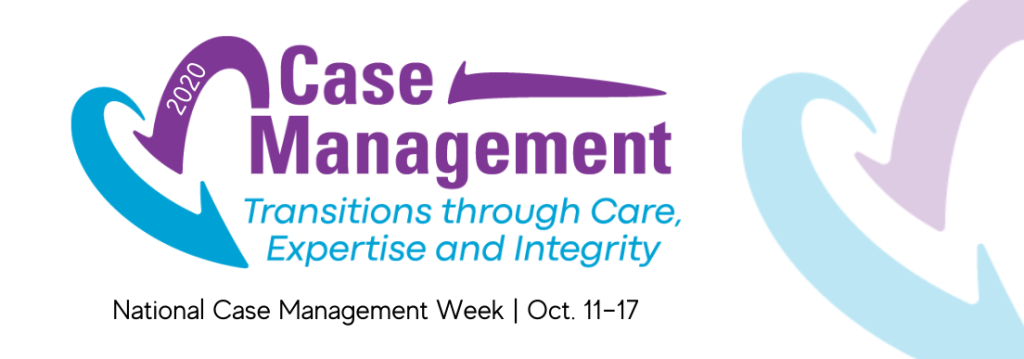UPHS — Marquette Celebrates National Case Management Week
October 12, 2020

This week, UP Health System — Marquette recognizes the commitment of case managers at the hospital: the Care Management Department. When it comes to coordinating care for patients, the Care Management Department’s diverse responsibilities are a vital part of the hospital’s day-to-day tasks. Read more about Care Managers at UPHS — Marquette below.
What do Care Managers do at UPHS — Marquette?
“We’re responsible for making sure the patients have everything they need when they go home,” said Linell McLaughlin, UPHS — Marquette RN Care Manager. “We make sure all the orders are correct, that there is insurance verification, the patient meets the right status for criteria, and review what the doctors are ordering.”
“We’re like the second pair of eyes and ears for ensuring the patient receives the correct care from the hospital. When a patient has a problem or a concern, it becomes our concern to make sure we’re the advocate going to the right person to help them solve the issues.”
Why are Care Managers essential to patient care?
Care Managers help to better manage patient care for every patient staying at the hospital. UPHS — Marquette’s average daily patient census is between 130-150 patients. Every patient has a case manager review the patient’s case to make sure the person is receiving the right level of care — whether that means the patient should be in the ICU, a step-down unit, or a telemetry bed. Then they review the status, such as should the patient be deemed inpatient, observation, or outpatient.
“Every three days, if the patient is still here, we go through and review if they continue to qualify to be here,” said Julie Giackino (BSN, RN), Director of Care Management at UPHS, “We’re looking and seeing if we’re doing what we need to be doing. We, in turn, communicate with the physicians and let them know if their patient meets medical necessity or advise a provider that the patient in observation qualifies for inpatient status.
What are more examples of care management?
- Reviewing cases for medical necessity.
- Ensuring payer authorization is obtained from the referral source prior to surgical procedures.
- Focusing on quality.
- Contacting insurance companies to obtain authorizations for admissions.
- Reviewing the patient’s admission status, which is an integral part of the Utilization Review.
- Continually provide coordination and communication between patients, families, and health care providers.
- Discharge planning.
When do Care Managers get involved in a patient’s care?
“When patients come in, we’re working with the admission staff and making sure the patient is in the correct status. With discharge, we’re also working with the billing staff to make sure we’re billing the stay correctly,” said Giackino.
“When it is time to decide the next steps forward for a patient, it’s here when the interdisciplinary team decides if the patient is healthy enough to return home, will need additional services, or be admitted to a nursing facility,” said McLaughlin.
“We often have difficult conversations with patients and families concerning what is next for them, what their needs are, and then we facilitate that once a patient has signed a preference letter as to where they want to go,” Giackino said. “Then we send a packet of information to the facility or agency and make sure that they’re willing to accept the patient.”
The Care Management Department at UPHS — Marquette also coordinates the treatment options with various therapies including physical, occupational, speech, respiratory, and wound care, as well as working with dietitians and the pharmacy. This allows a clear understanding of what the patient will need upon discharge.
Why do you enjoy working as a Care Manager?
“Helping the patients navigate a complicated medical environment where they may not know something is the biggest thing,” McLaughlin said. “It makes me take pride in being able to help them out and let them know that we are in their corner and help them get home.”
“I think we’re truly the heart of finding that balance for the patient,” Giackino said, “making sure they get all the care they need and making sure the institution is providing the right level of care every day for that patient. When that patient is ready to go, we facilitate them getting discharged from the facility.”
“We play a really important role in caring for the patient and seeing them through their hospital stay and making sure they have everything they need to exit the hospital,” said June Wickstrom, UP Health System — Marquette RN Case Manager. “I always felt like we were a big part of the patient stay in making sure they are equipped to leave the hospital. Every day we take a lot of pride in what we do.”
Thank you to Care Managers at UPHS — Marquette!
With the various daily tasks, it’s not difficult to see the commitment level of the care management department invests in the patients and hospital to ensure the best outcomes for both parties.
“They’re awesome,” Giackino said of her staff. “This is our community, our families, our neighbors, our friends that we are caring for. We truly care for our patients as if they are our own families, and in some cases they are. We want to get it right for every patient, every time.”
